Montenegro could participate in next European elections if it continues implementing reforms and achieving results
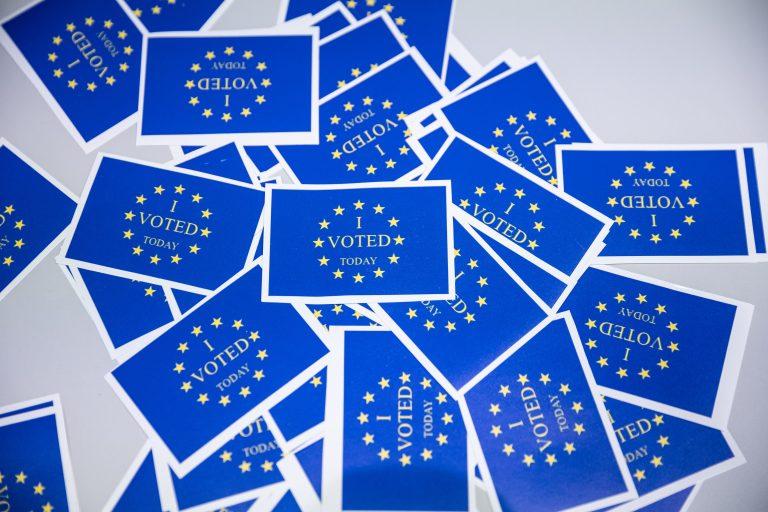
If Montenegro continues implementing reforms and achieving measurable results, it can become a full member of the European Union (EU) by the next elections for the European Parliament (EP), and its citizens will be able to participate in them and contribute to shaping the future of the EU. This was the message conveyed during the event "Election Night for the EP Elections."
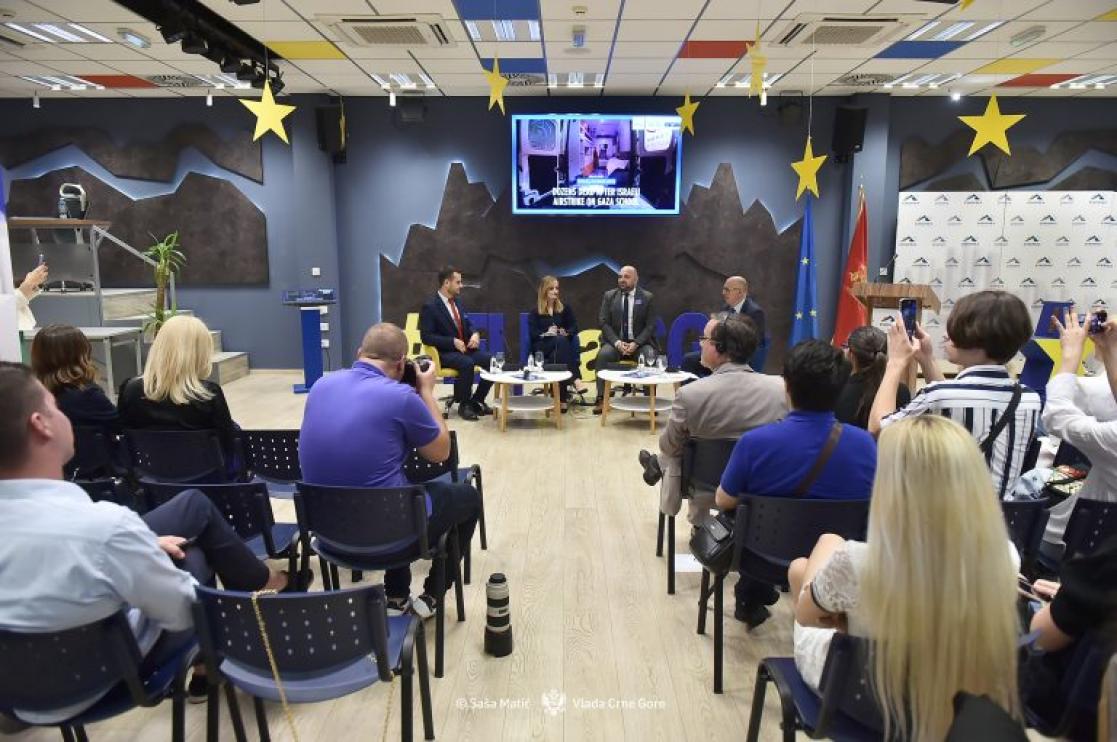
Copyright: Saša Matić, Vlada Crne Gore
During the event, organised by the Delegation of the European Union and the Ministry of European Affairs with the support of the EU4ME project, the Ambassador of the European Union to Montenegro Oana Cristina Popa emphasised that the European elections represent one of the most significant democratic events in the world and are the only multinational direct elections in the world. She highlighted that these elections empower citizens, strengthen the EU's legitimacy, and consolidate unity in diversity.
More than 370 million people from 27 member states voted in the elections, which started in the Netherlands and lasted from 6 to 9 June. A total of 720 MEPs were elected, with each country having a fixed number of MEPs that can enter the EP–Germany, as the largest EU country, will have 96 MEPs, while Malta, the smallest, will have six.
"Based on Montenegro's ability to implement reforms and firmly remain on the European course, I hope that Montenegrin candidates will soon run for the European Parliament," said Popa at the event where attendees had the opportunity to participate in a simulated EP voting session.
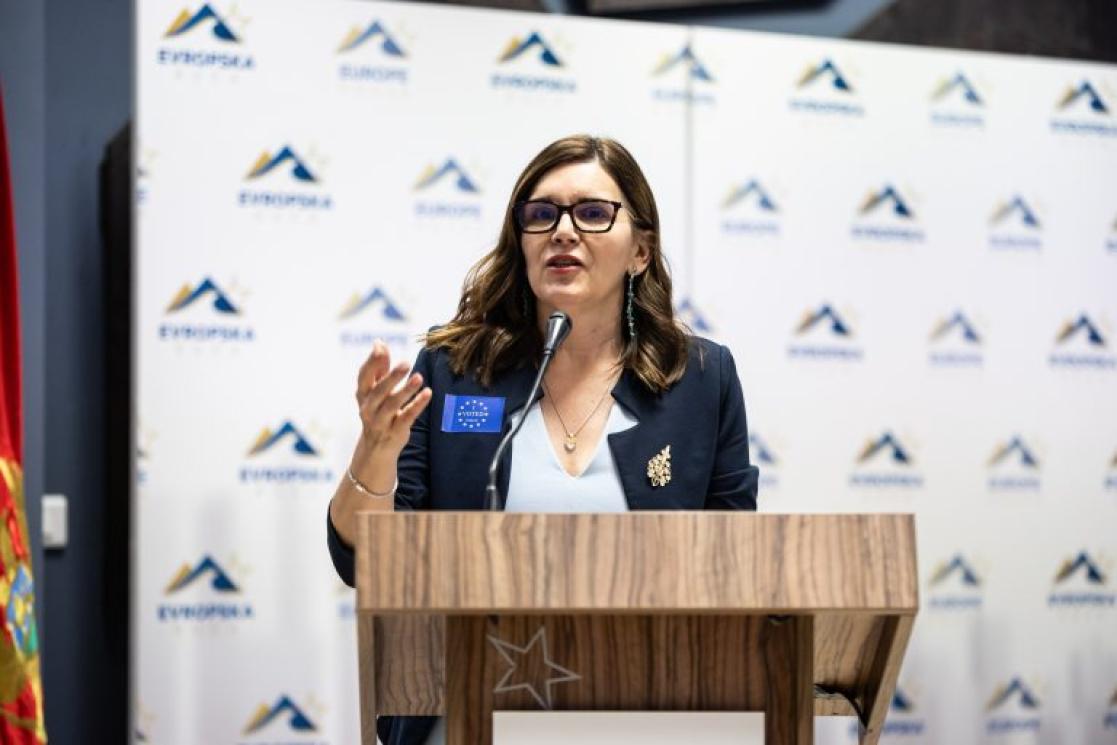
Copyright: Saša Matić, Vlada Crne Gore
The Ambassador reflected on Montenegro’s intensive work , which now is expecting to receive the IBAR and enter the final phase of negotiations. "Montenegro could soon meet the key criteria of the rule of law and significantly improve its prospects for the EU membership. However, there is still a lot of important work in these final days, and even more work will be needed until the negotiations are concluded."
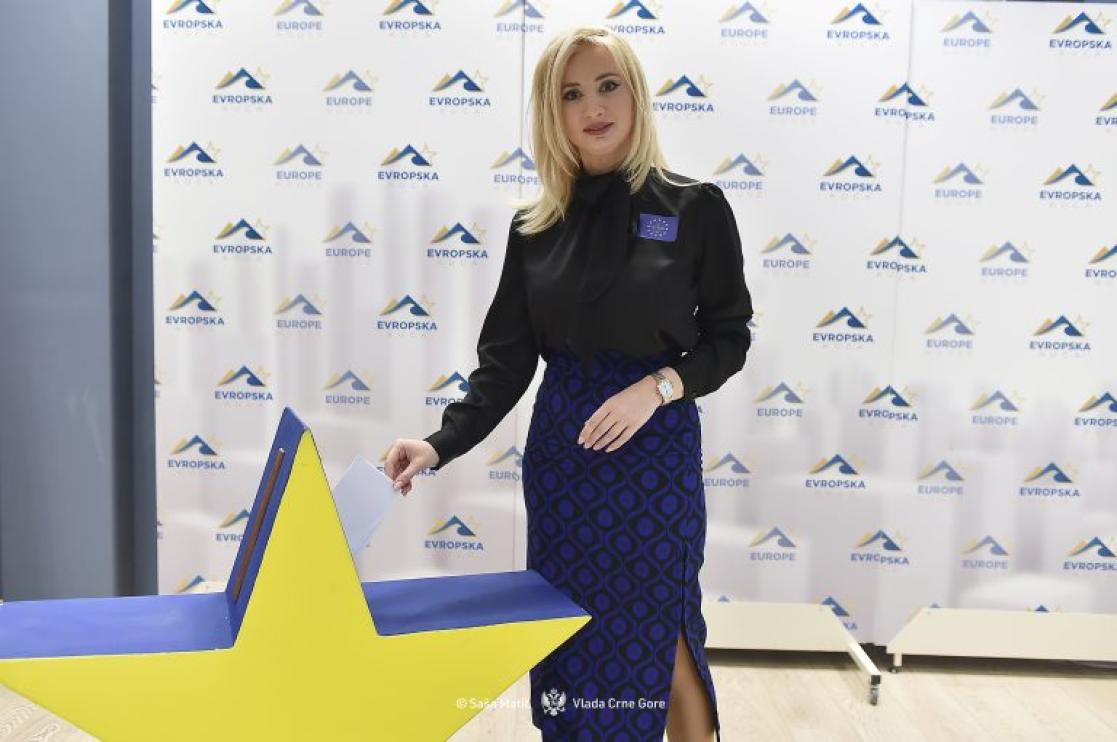
Copyright: Saša Matić, Vlada Crne Gore
Minister of European Affairs, Maida Gorčević, also addressed the dedicated work of the administration. She emphasised that the adoption of the laws required for the IBAR in the Montenegrin Parliament will show that our country is truly committed to the European integration.
"However, these are not only our results–they are the product of the joint work with our European partners who have provided us with continuous support, knowledge, and understanding to persevere and give renewed momentum to the reform processes," said Gorčević.
The Minister expressed great gratitude to the EU and Ambassador Popa, without whom our European integration would not have been possible to the extent and capacity in which it is taking place, especially in the past few months.
"And finally, I will not speak of hopes but of firm belief that by the next European elections, Montenegro will be a full member of the EU, and Montenegrin citizens will have the opportunity to vote in the next European elections, actively participating in decision-making that shapes the future of our continent," said Minister Gorčević.
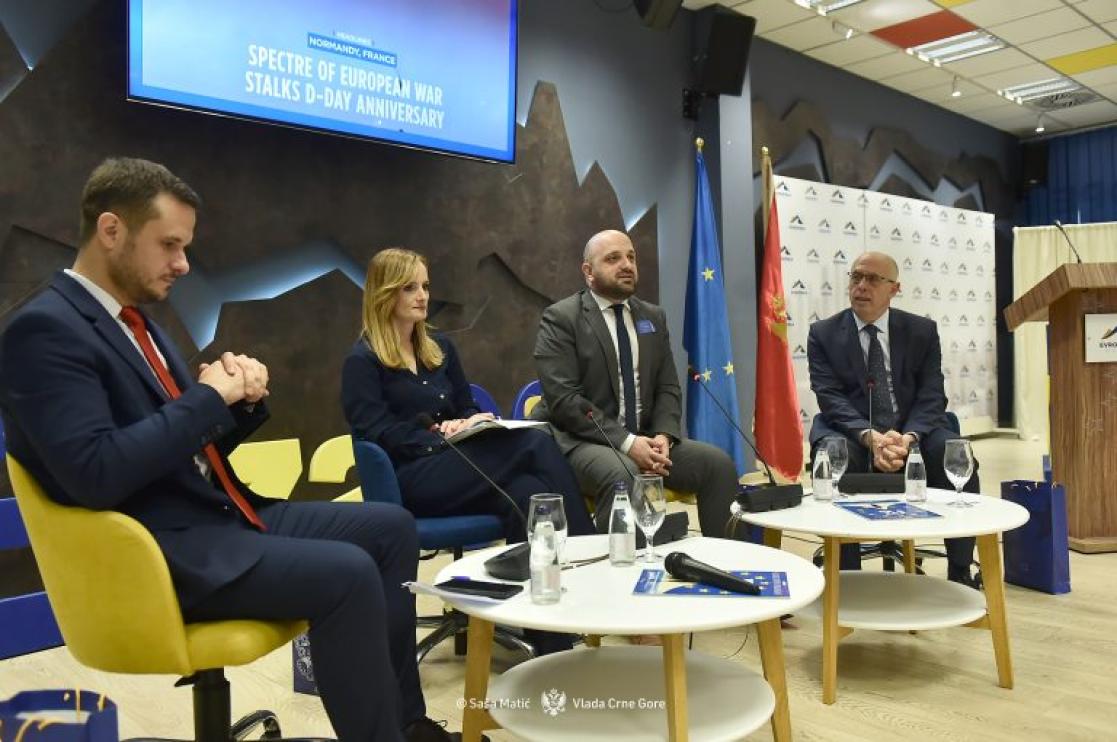
Copyright: Saša Matić, Vlada Crne Gore
The event also featured a panel where Montenegro's Chief Negotiator with the EU, Predrag Zenović, lecturer at the University of Donja Gorica Nikoleta Đukanović, and long-time correspondent for Jutarnji list from Brussels, Augustin Palokaj, discussed the impact of the EP elections on Montenegro.
The panellists agreed that the rise of the right-wing will not be a threat to the enlargement, since it is fragmented, and the decisive majority will still be held by parties that support the enlargement policy, which is one of the EU's most successful policies.
"I do not anticipate significant changes in the current assembly, in terms of alterations in political groupings and the number of seats they will secure. The right-wing is always present and can be intimidating, but I do not share the view that there will be significant changes in the key policies that the EU will advocate for and pursue," stated Đukanović.
Palokaj, however, pointed out the danger of the rise of the far-right in EU member states: "The EP has a role in the enlargement, but member states participating in the negotiations can block the process if the far-right comes to power there. However, no matter how loud they are, I do not expect their influence to be so great that they can block the processes."
The new configuration of the EP and the newly elected institutions will be, as Zenović believes, on the path towards strengthening the enlargement policy as the most important pillar of the EU's foreign policy and its geopolitical influence.
"I believe that for the Western Balkans and Montenegro there is no fear or concern that the process will be slowed down. I believe that in the new geopolitical context, this process will be accelerated, and Montenegro will be the next member of the EU," said Zenović.
Together with the State Secretary of the Ministry of European Affairs, Bojan Božović, who moderated the panel, the panellists exchanged views on lowering the voting age in the EP elections to 16 years and welcomed the increased participation of youth in this election process.





